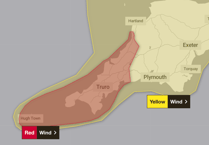A RETURN to two-way tolling and electronic payments to tackle traffic jams at the Severn bridges' toll plazas are on the cards after the crossings return to public ownership– with charges almost certain to continue.
It had been hoped that tolls could be significantly lowered or scrapped when the bridges are again run by the government – probably in 2018 – but MPs were told charges will have to stay to pay off an £88 million debt to pay for unexpected work on the original crossing.
But local MPs say the government has benefited from more than £150 million flowing into its coffers after the European Union insisted VAT was charged on tolls as well as the removal of a tax break that bridge operator Severn River Crossing (SRC) was able to claim.
Newport East Labour MP Jessica Morden called for 'more clarity' on what is likely to happen with the bridges when she questioned a transport minister on the issue – the third debate she has called on the crossings in five years.
She said: "There is now a real need for clarity from the government on the profits, operating costs and so on and on where we are going in future.
"We must have clarity about what discussions the government are having and what the direction of travel is."
She also pointed out that the government had written off £150 million debt on the Humber Bridge, allowing tolls for cars to be halved to £1.50.
Ms Morden asked: "Why will the government not step in for a smaller amount?"
Her call was backed by Labour colleagues, other parties including Plaid Cymru and the Scottish Nationalists and by David Davies, the Conservative MP for Monmouth.
He said: "I do not often call for the nationalisation of industry, but in this case, given that it will lead to a big cut in tolls for constituents, I am all for it.
"The Government say that they received an unexpected cost of £88 million for maintenance of the first crossing...all around the country, pieces of infrastructure have had unexpected amounts of money spent on them."
Richard Burden (Lab, Birmingham Northfield) asked the government to investigate the economic impact of tolls on the economy of Gloucestershire and the south-west as well as Wales.
Transport minister Andrew Jones (Con, Harrogate and Knaresborough) said tolls would end when SRC had collected the equivalent of £1.029 billion at 1989 prices.
He said: "Our intention is to continue tolling after the projected end of the concession in 2018 simply to recover the costs that have been incurred in relation to the crossings that fall outside the agreement (with SRC).
"I have started to consider whether we can take lessons from other free-flow schemes in our country, notably the DART tag scheme, which has made a significant time saving for commuters on the Dartford crossing.
"We are considering whether that could be used on the Severn. I am also considering whether it could be made collectable both ways – technology frees up opportunity, and I think that it would prove popular."
Motorists crossing the Thames Kent and Essex do not have to stop but must pay either online or at a paypoint in a shop by midnight the following day. It is enforced using number plate recognition technology.
•A PETITION set up by a Chepstow resident last weekend, calling for free or reduced tolls on the bridges, had gathered more than 3,000 signatures when the Review went to press.
Steven Holloway, of Chepstow, posted the petition on change.org, and on the webpage he wrote: "The Severn Crossings are a lifeline for some so they can get to work in Bristol and surrounding areas, fuel costs are bad enough without the added worry of bridge tolls, £6.50 a day per car, £13.10 per day per vans up to 3500kg, and £19.60 per day for buses and goods vehicles.
"This is a big deduction out of our salaries and we feel it should be made free or a small £1 toll for people living in south Wales and the surrounding postcodes who need to commute to England. It has also cost a lot of jobs in South Wales due to businesses leaving the area thanks to heavy toll charges."





Comments
This article has no comments yet. Be the first to leave a comment.